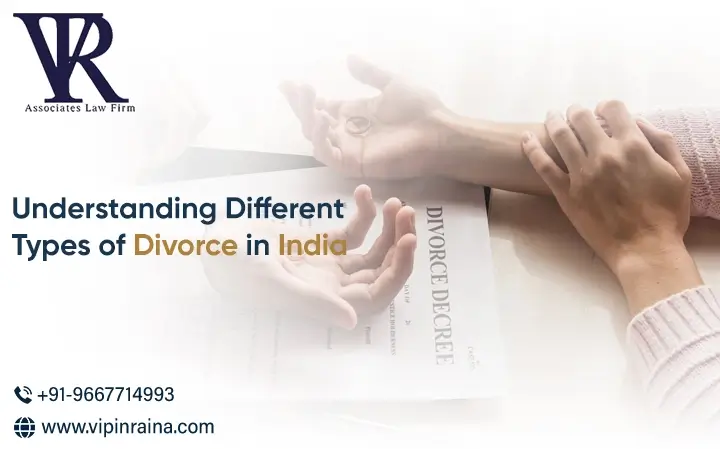Divorce Mistakes That You Can't Afford
18 Dec, 2024
Divorce marks the legal end of a marriage, and in India, it can broadly be classified into two types: mutual divorce and contested divorce. Understanding these two pathways can help couples make informed decisions during a challenging time.
1. Mutual Divorce
Mutual divorce, also known as divorce by mutual consent, is a process where both spouses agree to dissolve their marriage amicably. This method is generally quicker, less costly, and less stressful than contested divorce, as it does not require prolonged court battles.
Key Features of Mutual Divorce:
● Agreement on Separation: Both parties agree on major issues like alimony, child custody, and property division.
● Less Time-Consuming: The process can be completed in a few months, depending on the mandatory separation period prescribed by law.
● Lower Costs: Costs are reduced as there are fewer legal proceedings and no need for extensive litigation.
● No Court Trials: Often, mutual divorces do not require a trial, and the couple may not have to appear in court multiple times.
2. Contested Divorce
A contested divorce occurs when one spouse wants to divorce and the other does not, or when they cannot agree on terms like alimony, child custody, or property division. This type of divorce can be emotionally and financially draining due to the involvement of the court.
Key Features of Contested Divorce:
● Disagreement and Opposition: One or both parties disagree on terms or the divorce itself.
● Evidence Submission: Evidence to support claims regarding disputes over finances, custody, or other issues is necessary.
● Mediation Required: Often, courts require mediation to attempt to resolve disputes before proceeding with litigation.
● Higher Costs and Longer Duration: Due to multiple court hearings and the complexity of the cases, contested divorces are more expensive and time-consuming.
Legal Assistance
In both types of divorces, the guidance of experienced attorneys is crucial. Legal representatives help navigate the complexities of divorce laws, ensuring that the rights and interests of their clients are protected. For individuals undergoing divorce, seeking advice from a specialized law firm like VR Associates Law Firm can be beneficial. VR Associates Law Firm is known for their expertise in handling both mutual and contested divorces efficiently.
Conclusion
Choosing between mutual and contested divorce largely depends on the specific circumstances of the marriage and the ability of the spouses to collaborate on their separation terms. A mutual divorce can offer a dignified end to a marriage with less stress and expense. However, when disagreements prevail, a contested divorce becomes necessary to assert one’s rights legally.
For those looking to understand more about the legal proceedings or need assistance, contacting a Mutual Divorce Attorney can provide clarity on the Mutual Divorce Process and drafting a Mutual Divorce Agreement. Consider engaging services from VR Associates Law Firm for comprehensive support and guidance through the Mutual Consent Divorce process.
FAQs
What is the Difference between Mutual Divorce and Contested Divorce?
The primary difference lies in the consent and cooperation between the spouses, affecting the time, cost, and emotional toll of the proceedings.
What is Alimony in Divorce?
Alimony refers to the financial support that one spouse may be required to provide to the other post-divorce, as determined by the court in contested cases or agreed upon in mutual divorces.